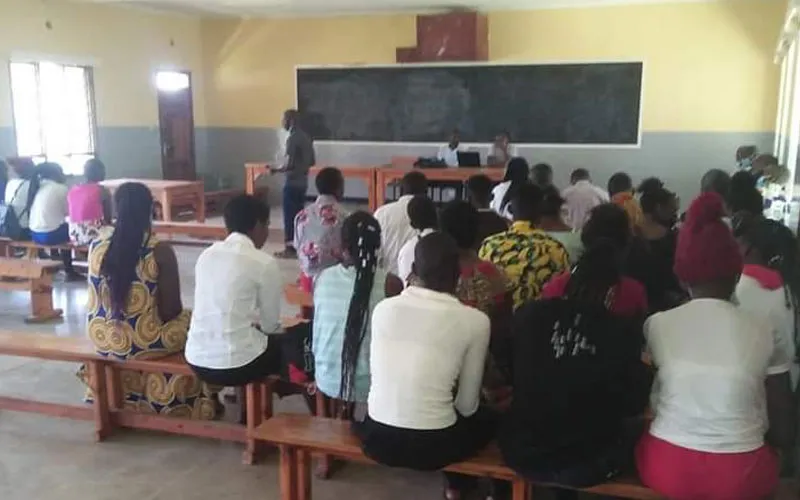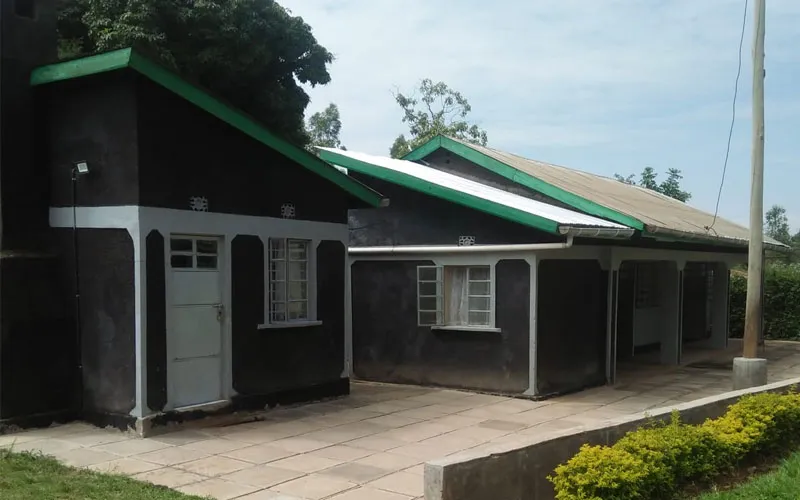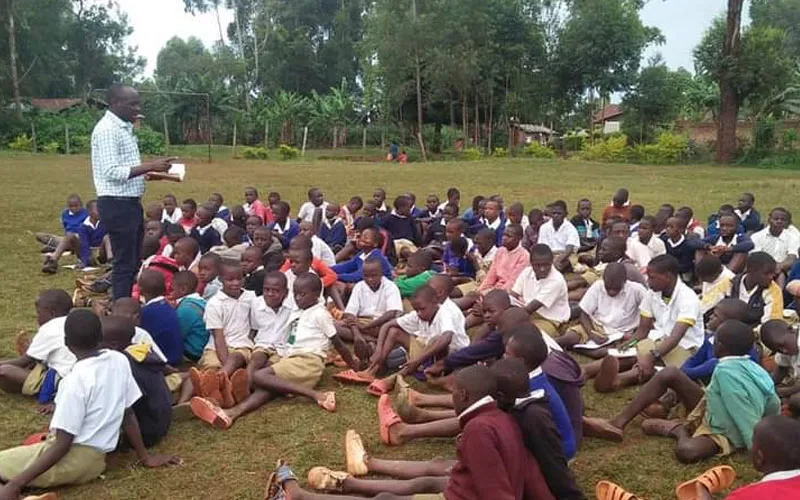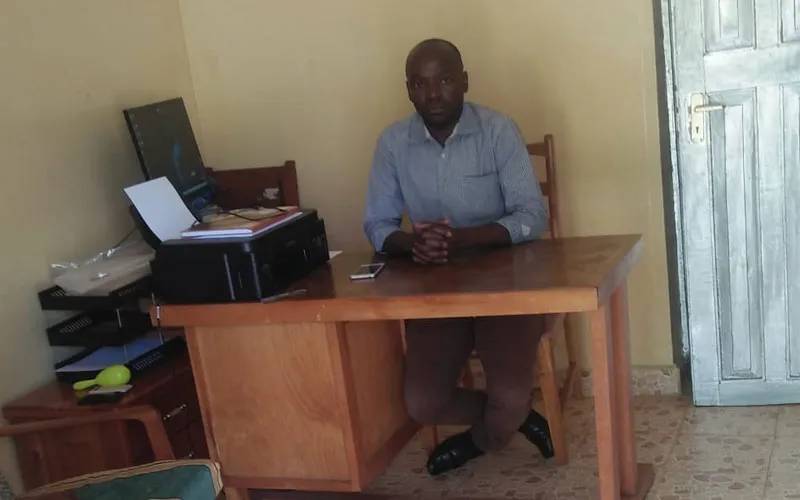 Credit: St. Joseph's Resource Center
Credit: St. Joseph's Resource Center
Needs assessment carried out in the Catholic Parish project has established that there is a significant issue of street children in Luanda and its environs, and that the children are vulnerable and face many challenges, which are heightened by the fact that there is little, if any funding available to support them and organizations working with them.
Additionally, there are limited resources available through the children's office at the county government level, making the work of St Joseph’s Rehabilitation Center difficult, according to a report from the assessment that was carried out in 2015.
“Children end up on the street feeling lost and rejected where life is a dangerous and harsh existence and most children become resilient and inventive in order to survive,” reads the report shared with ACI Africa December 2.
It adds, “Drug abuse is a problem for many street children and it is often the only way to escape the existence they find themselves in if only for a few hours. Luanda market place is home to approximately 200 street children.”
(Story continues below)
Mr. Muhatia said that the primary aim of St. Joseph Resource Center is to eliminate substance abuse in villages surrounding the Parish and to help people live dignified lives, including former street children.
The specific objectives include reducing alcohol and drug abuse by both children and young people and their parents, as well as a focus on other key public health areas, such as obesity and smoking.
The Center was also established to improve children’s behavior at school and to reduce the rate of unemployment owing to substance abuse.
Clients at the Center are therefore street boys who are enrolled in the rehabilitation program of the Parish, their families, school children as well as people who are struggling with drug addiction.
“We realized that the street children that we journey with for a whole year before integration quickly relapse and go back to the streets. We tried to find out the cause of this and realized that family therapy is not done well. At St. Joseph Resource Center, families of the street children are brought on board in the rehabilitation process,” Mr. Muhatia said.
The September 6 launch involved various community awareness activities, with social workers at the Church-based organization going around schools, Churches and social gatherings to sensitize locals on the dangers of drug abuse. The organization had gone to 10 schools when Mr. Muhatia spoke to ACI Africa.
The Center operates on church structures in identifying, supporting and journeying with families and individuals with challenges, Mr. Muhatia said, and added, “Family life ministry is stressed through ongoing counselling of family members to help families function well so as to reduce the number of children on streets. Parenting skills are also addressed using an evidence based parenting program.”
Staff at St. Joseph Resource Center are shared between the Resource Center and the rehabilitation facility for street children. They include counsellors, social workers and administrative staff.
Services at the facility are free and include counselling, financial advice and family follow-ups of those enrolled in the program.
Activities at the Center include individual treatment planning, individual and family therapy and group therapy sessions. The street children, families and other people struggling with drug addiction also journey closely with Priests, women and men Religious, Seminarians, as well as support groups at the Parish.
Flexible evening sessions for working adults and those with daytime responsibilities are also provided.
The plan is to equip those who have undergone the program with basic counselling skills and to allow them to participate in community outreaches.
The Center is also making referrals, where appropriate, to specialist services, such as severe drug and alcohol addiction as well as mental health issues.
The biggest challenge that the Center is facing at the moment is lack of cooperation from authorities whose job is to prevent the sale of illicit brew and drugs in Luanda.
“We have not received a lot of support from the police in terms of fighting the sale of chang’aa. In fact, there is a woman who sells chang’aa and marijuana at her home which is just about 200 meters from the police station. The police at that station do nothing to stop her,” Mr. Muhatia says.
He adds, “Local brewers are real trouble especially when they team up with authorities. There have been incidents where police nab illicit brew in Luanda town and instead of destroying it, they take it to the woman who sells chang’aa to sell it. They then collect money from the nabbed alcohol from the woman. The same goes for marijuana and other drugs.”
 Credit: St. Joseph's Resource Center
Credit: St. Joseph's Resource Center
Getting street children to reform is also difficult because they provide cheap labor to traders at the market, the official and St. Joseph’s Resource Center says.
“Street children are used to sell groceries and run errands for the rich traders within Luanda market. We consider this a form of child labor. Some of us who try to change things are treated with hostility because the traders don’t want to lose their source of cheap labor,” Mr. Muhatia says.
To reach more people who are in need of the services of the Center, the officials are in talks with the local administration, including chiefs who will make referrals to the Center.
“We have just concluded a meeting with this area’s County Commissioner to help us in our outreach programs and the mobilizing of clients for our services,” Mr. Muhatia told ACI Africa.
He added, “The local authorities are the people who interact with people who are addicted to drugs on a daily basis. They can refer them to us for counselling and reintegration programs. This will also allow us to attend community meetings where we will have a platform to sensitize the people on the dangers of substance abuse and enroll those who are struggling with addiction at the Center.”
This story was first published by ACI Africa on 2 December 2021
Agnes Aineah is a Kenyan journalist with a background in digital and newspaper reporting. She holds a Master of Arts in Digital Journalism from the Aga Khan University, Graduate School of Media and Communications and a Bachelor's Degree in Linguistics, Media and Communications from Kenya's Moi University. Agnes currently serves as a journalist for ACI Africa.




 Credit: St. Joseph's Resource Center
Credit: St. Joseph's Resource Center
 Credit: St. Joseph's Resource Center
Credit: St. Joseph's Resource Center Credit: St. Joseph's Resource Center
Credit: St. Joseph's Resource Center


